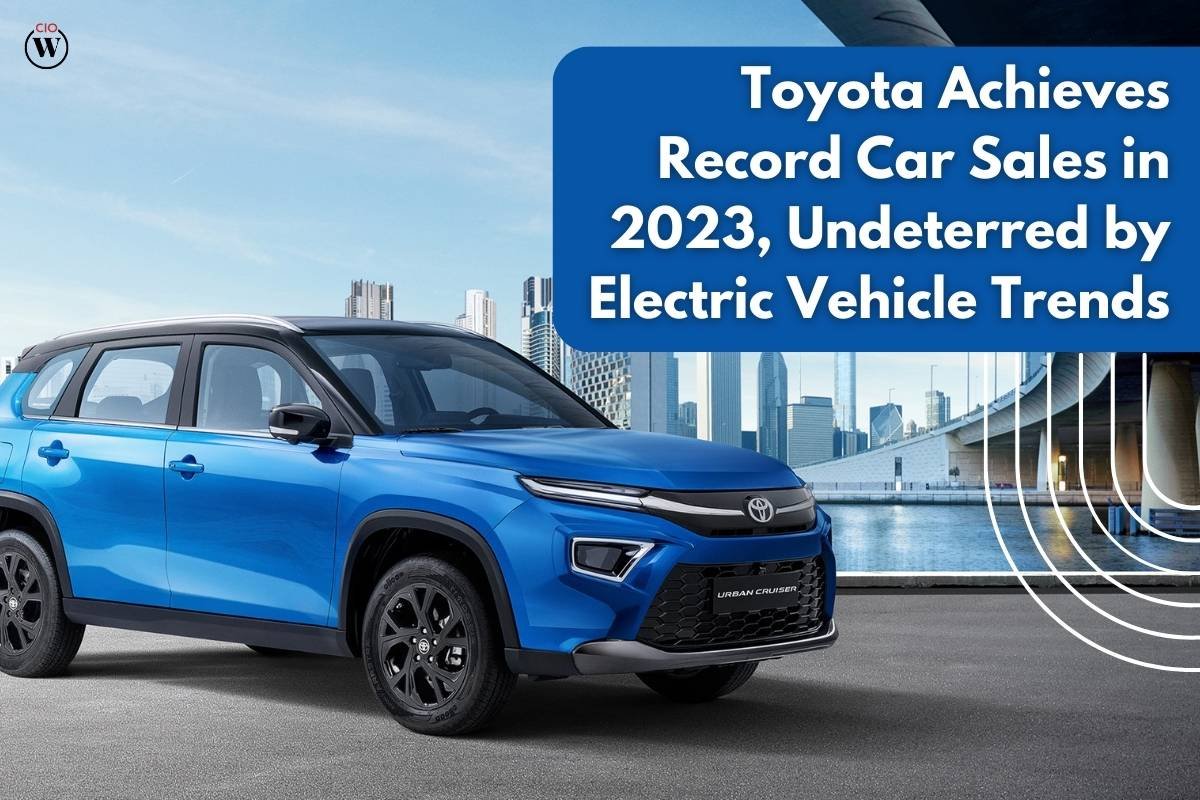In a remarkable achievement, Toyota, the Japanese automotive giant, surpassed its previous sales records in 2023, delivering a staggering 11,233,039 vehicles. This milestone marked a significant growth for the company, showcasing its continued dominance in the global automotive market. However, despite this success, a noteworthy aspect emerged – electric vehicles (EVs) contributed minimally to Toyota’s overall sales.
Out of the impressive total, only 104,018 vehicles were electric, constituting a mere 0.926 percent of Toyota, Lexus, and its other subsidiaries’ sales. This revelation prompted discussions within the company about the role of combustion engines, suggesting that the Company sees a persistent demand for traditional engine technology.
Chairman Akio Toyoda’s Vision for Engine Development
During a speech delivered before 200 corporate managers and executives, Chairman Akio Toyoda reaffirmed the company’s commitment to a “major engine development project.” This declaration aligns with a statement made at the 2024 Tokyo Auto Salon, where Toyoda emphasized the company’s dedication to engine innovation. Despite the growing emphasis on electric propulsion in the automotive industry, Toyota remains resolute in its belief in the ongoing relevance of combustion engines.
During the subsequent Q&A session, Toyoda expressed a bold prediction: he believes that battery EVs will not surpass a market share of 30 percent, irrespective of technological advancements. According to his vision, the remaining 70 percent will be divided among gasoline cars, hybrids, and fuel-cell EVs. Toyoda even hinted at the potential role of hydrogen-burning combustion engines as a viable solution, without mentioning diesel.
Toyota’s Unique Perspective in the EV Landscape
In contrast to the current trend where major automakers are pledging to transition exclusively to electric vehicles, Toyota stands out by asserting that battery EVs alone cannot achieve carbon neutrality. This assertion was reiterated by Chairman Toyoda, who highlighted the insufficient charging infrastructure, pointing out that “a billion people live without access to electricity” globally.
Given Toyota’s extensive global reach, the company believes that a holistic approach, combining various propulsion technologies, is necessary to address the challenges of achieving carbon neutrality.
While numerous competitors, including Jaguar, Chrysler, Lotus, Aston Martin, and others, commit to becoming fully electric by the end of the decade, the Company remains pragmatic in its approach. Even its luxury brand, Lexus, has vowed to cease sales of combustion engine cars by 2035. Despite the evolving automotive landscape, Toyota emphasizes the need for balance, acknowledging the significance of combustion engines in certain markets where electric infrastructure is not yet ready.
In a time dominated by electric vehicle announcements, Toyota’s commitment to engine development underscores the company’s distinctive perspective, asserting that the future lies in a diversified approach to propulsion technology.









